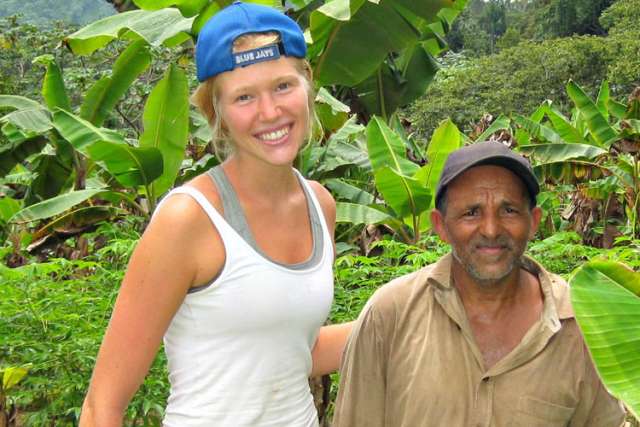For about a decade, this program founded by Catholic humanitarian Jean Vanier has been sending university students overseas to live and work alongside locals in developing nations with the hope that they will develop a respect and understanding for other peoples, religions and cultures.
From May to August, Intercordia will be sending 41 students to placements around the globe, to countries such as Rwanda, Dominican Republic, Ghana, Honduras, Nicaragua, Ecuador, Ukraine and Bosnia and Herzegovina. Plus, there is an option to be placed with L’Arche Canada, communities for people with intellectual disabilities. And the newest placement is in the city of Belgrade in the once war-torn Serbia.
But what makes Intercordia different than the typical mission or social justice trip is that it is more about being with people than doing for them.
“We do not send students overseas to facilitate change, to build a school, to teach people our ways, to teach them something that perhaps we think they need to know,” said Joe Vorstermans. “We are sending students overseas so they can have a first hand experience and understand from the inside out what it is that is both beautiful and distressful in the host community of which they will spend their summer placement.”
Vorstermans is the founding director of Intercordia Canada. He said that “Jean’s vision has always been that the poor of the world are the ones who will transform our hearts to become more compassionate human beings.”
“Some of our placements, like in Rwanda and in Ghana and in Ukraine, many of those people will never leave their host community, they will never travel, they will never have an international experience. But welcoming a couple of Canadians every year is a way for them to kind of have access to the larger world. And that’s a really beautiful gift,” said Vorstermans. Students will be able to present a positive image of Westerners that people in these countries don’t always see represented.
“And of course it’s a beautiful gift for our students to have the experience of living with a local host family, experiencing life at that very basic level,” he said.
The new placement in Serbia is similar to the other placements in that it is small, grassroots, founded by a local person and typically run by volunteers on a “shoestring budget,” said Vorstermans. “It’s similar in that it’s responding to a very specific and often pressing need in the society.”
He says he likes this concept because “students can connect with people who are by their own initiative creating change in their own country.” Young people struggle with the question, “Is it possible for my life to make a difference in the world?” he said. “And so they end up spending the summer with someone who demonstrates very very clearly that yes, one person can make a very significant difference.”
To prepare students for their trip, Intercordia partners with universities that are willing to offer a course for credit that will allow students to research and study the country to which they wish to travel. The program also accepts students from universities that are not partners. Then Intercordia also runs its own preparation seminar.
When overseas, the students live with a host family.
“In many ways, students experience something very, very hopeful at a very intimate level,” said Vorstermans, calling the experience hopeful, despite the struggles of their circumstances. “They see how courageous people who live in poverty are. They see how hard they work, they see how much they want good things for their children, for their community, for their country.”


